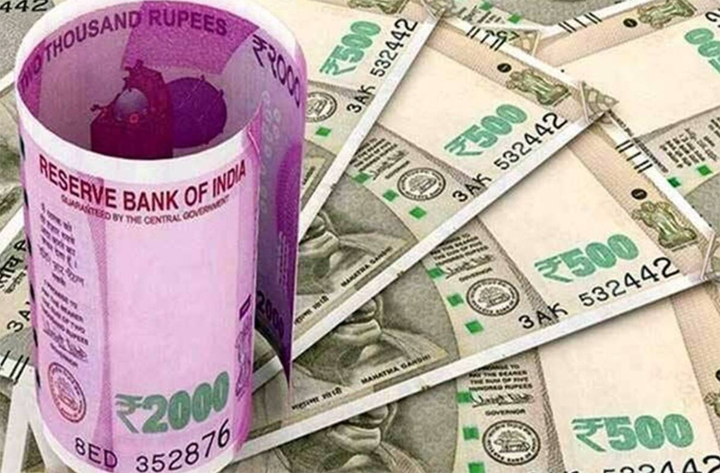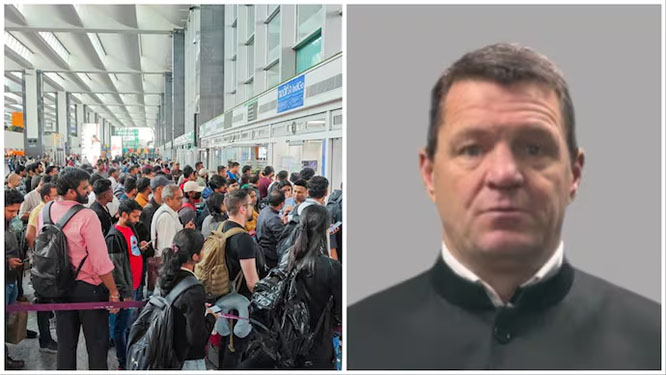
New Delhi, Oct 14: The Supreme Court Wednesday said the centre should implement "as soon as possible" interest waiver on loans of up to Rs 2 crore under the RBI moratorium scheme in view of the Covid-19 pandemic, saying the common man's Diwali is in the government's hands.
The apex court sought to know from the Centre as to whether the benefit of loan interest waiver for borrowers of up to Rs 2 crore during the moratorium period has “percolated” to the common man.
The court, which observed that it is concerned about how the benefit of interest waiver would be given to borrowers, said the Centre has taken a “welcome decision” by taking note of the plight of the common man but authorities have not issued any order in this regard.
“Something concrete has to be done,” a bench headed by Justice Ashok Bhushan said, adding, “Benefits of waivers to borrowers up to Rs 2 crore must be implemented as soon as possible”.
The top court, which posted the matter for hearing on November 2, told the advocates appearing for the Centre and banks that “Diwali is in your hand”.
The Centre recently told the apex court that going any further than the fiscal policy decisions already taken, such as waiver of compound interest charged on loans of up to Rs 2 crore for six months moratorium period, maybe "detrimental" to the overall economic scenario, the national economy and banks may not take "inevitable financial constraints".
The top court is hearing a batch of petitions which have raised issues concerning the six-month loan moratorium period announced due to the Covid-19 pandemic.
The bench, also comprising Justices R S Reddy and M R Shah, said when authorities have decided something then it has to be implemented.
“The government has taken a welcome decision taking note of the plight of common man. But you have not issued any order to anybody. You have simply given us the affidavit,” the bench told Solicitor General Tushar Mehta.
“We are now concerned about how waiver benefit will be given,” the bench said, adding, “We are only asking whether the loan interest waiver has percolated or not”.
During the hearing conducted through video-conferencing, Mehta told the bench that the Centre has taken an “informed decision” and has taken a “huge burden”.
“When Central Government says on an affidavit that it will be implemented then there should not be any apprehensions,” Mehta said. “There is diversity in lending and different modalities are required to be followed.”
He said banks would waive interest on interest and then will be compensated by the government and calculation will have different modalities.
“We are telling you that it is a welcome decision but they want some concrete things,” the bench observed, adding, “We welcome the decision of the Centre, only thing it should be translated practically”.
The bench said the Centre may take steps to implement its decisions referred to in the affidavits filed in the court.
Senior advocate Harish Salve, appearing for banks association, told the bench that banks would implement whatever decision has been taken by the government.
Senior lawyer Rajeev Dutta, appearing for one of the petitioners, said the banks are capitalizing by taking interest on interest on existing loans.
“We are small people with small loans (less than Rs 2 crore). They should not compound the interest in these cases," Dutta said.
To this, the bench said it has already ordered that banks cannot declare NPAs.
“We have already passed an order prohibiting classification of NPA's and without a fiscal policy, proposals cannot be altered,” it said, while asking the Centre and banks association as to when the benefits would be implemented.
“For these modalities you require one-month time,” the bench asked.
Salve said, “The complexity is such, it requires time”.
The bench, however, said that the decisions taken by the authorities should be implemented now.
The top court is hearing the petitions, including the one which has sought a direction to declare the portion of an RBI notification, issued on March 27, "ultra vires to the extent it charges interest on the loan amount during the moratorium period..."
The Reserve Bank of India (RBI) has recently filed an affidavit in the apex court recently saying that loan moratorium exceeding six months might result in “vitiating the overall credit discipline”, which will have a “debilitating impact” on the process of credit creation in the economy.
These affidavits were filed following the top court's October 5 order asking them to place on record the K V Kamath committee recommendations on debt restructuring because of the Covid-19 related stress on various sectors as well as the notifications and circulars issued so far on loan moratorium.
It has also said that the apex court’s interim order of September 4, restraining classification of accounts into non-performing accounts in terms of the directions issued by the RBI, may kindly be vacated with immediate effect.
The Kamath panel had made recommendations for 26 sectors that could be factored by lending institutions while finalising loan resolution plans and had said that banks could adopt a graded approach based on the severity of the coronavirus pandemic on a sector.
Initially, the RBI on March 27 had issued the circular which allowed lending institutions to grant a moratorium on payment of instalments of term loans falling due between March 1, 2020, and May 31, 2020, due to the pandemic.
Later, the period of the moratorium was extended till August 31 this year.







Comments
Add new comment